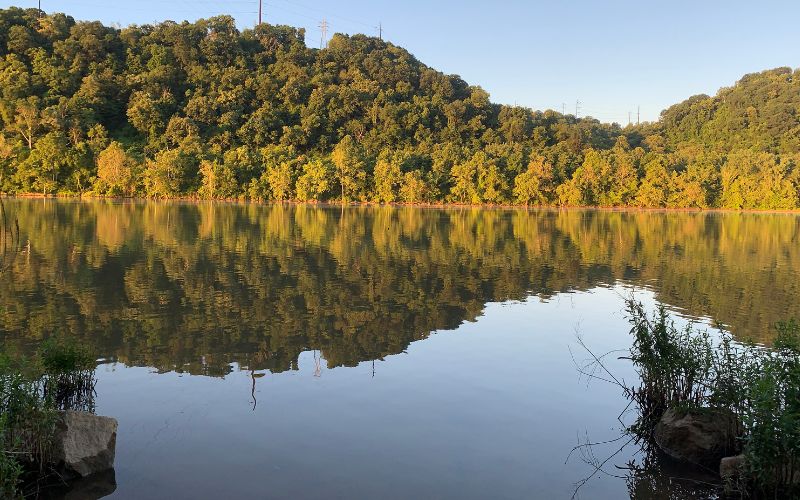
- Details
- By Native News Online Staff
Last week, the Seneca Nation of western New York officially filed a Notice of a Claim against the City of Olean after its city’s wastewater treatment plant overflowed into the Nation’s waterways for the second time this year.
On July 2, the Tribe announced that it took the initial step to a lawsuit against the city after approximately 200,000 gallons of untreated sewage from the City of Olean Wastewater Treatment Plant about 20 miles east of one of the Tribe’s two reservations leaked into the Allegheny River over the course of four hours, the Tribe announced in a memo.
Another 80,000 gallons of untreated sewage were released into two of the river’s tributaries by the wastewater treatment plant’s pump stations, the Tribe added.
“The river, which we call Ohi:yo’, has been under decades of attack in the form of the continued, dangerous, and unlawful discharges from the Olean Wastewater Treatment Plant,” said Seneca Nation President Rickey Armstrong in a statement. “The health and safety of Ohi:yo’ and the many people who utilize and depend upon its waters, including the Seneca people and many of our neighbors, must be prioritized and protected.”
The Notice of Claim preserves the Nation’s right to initiate a lawsuit against the City, and focuses on two separate overflow events.
On April 3, the same plant reported two overflows of a collective 186,000 gallons of untreated sewage discharged into the river. The following month, The Seneca Nation issued swimming advisories for the Allegheny River for elevated levels of enterococci—which are indicators of fecal material in water— and E. Coli.
The Nation said in its statement it is also considering filing an action in its own courts against the City and its officials “for actions and purposeful inactions resulting in continuing trespass on and spoilation of Nation lands and waters.”
In 2022, the Tribe sent a notice of intent to initiate civil action against the city for violating the Clean Water Act by discharging an excess of pollutants in the river.
In 2001, the New York State Department of Environmental Conservation required the city to upgrade its wastewater treatment facilities to prevent discharges into the river, but the city has requested extensions and currently has through 2042 to be fully compliant with the order.
More Stories Like This
Trump signs law that revokes some limits on drilling in Alaska’s National Petroleum ReserveSouthern Sierra Miwuk Nation Gets 900-Acres ofLand Back
Chilkat Indian Village Tells New Palmer Mine Owners They Are “Not Welcome” in Chilkat Valley
Tribes, Coastal Group Ask Army Corps to Revoke Permit for Texas Export Terminal
Michigan Tribes Tell Supreme Court: Don’t Bail Out Enbridge
Help us defend tribal sovereignty.
At Native News Online, our mission is rooted in telling the stories that strengthen sovereignty and uplift Indigenous voices — not just at year’s end, but every single day.
Because of your generosity last year, we were able to keep our reporters on the ground in tribal communities, at national gatherings and in the halls of Congress — covering the issues that matter most to Indian Country: sovereignty, culture, education, health and economic opportunity.
That support sustained us through a tough year in 2025. Now, as we look to the year ahead, we need your help right now to ensure warrior journalism remains strong — reporting that defends tribal sovereignty, amplifies Native truth, and holds power accountable.
 The stakes couldn't be higher. Your support keeps Native voices heard, Native stories told and Native sovereignty defended.
The stakes couldn't be higher. Your support keeps Native voices heard, Native stories told and Native sovereignty defended.
Stand with Warrior Journalism today.
Levi Rickert (Potawatomi), Editor & Publisher


